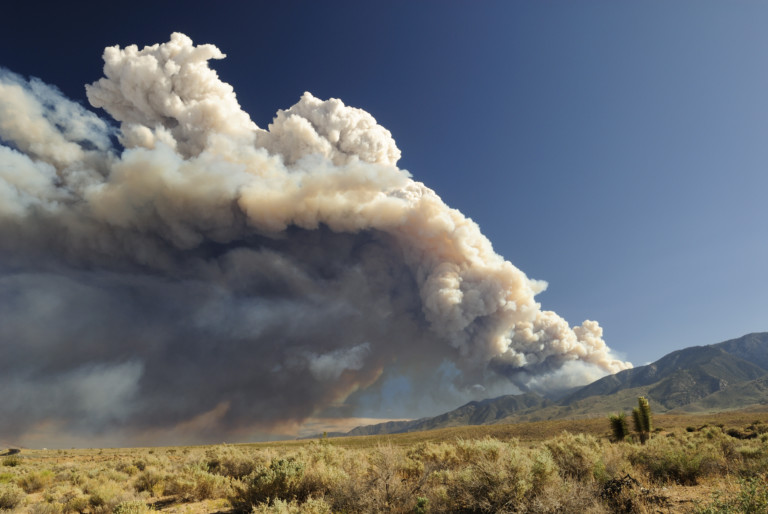Sustainable cities
Academic climate activism – problem or opportunity?

More and more researchers are raising their voices for a more ambitious climate policy. The difference between public appeals and radical climate actions may seem vast, but when does enthusiasm become activism and how is research impacted? This is the subject of a new research project.
Subscribe to Extrakt newsletter!
Läs mer
Stay up to date! Get the knowledge, ideas and new solutions for a sustainable society.
Personal data is stored only for the mailing of Extrakt newsletters and information related to Extrakt’s operations. You can cancel the newsletter at any time, which means you will no longer receive any emails from us
“There is some confusion about what the researcher’s role entails and the boundaries they should remain within. We believe that it is valuable to understand how you reason as a climate activist and researcher, what dilemmas you face and how these are handled,” says Anders Hylmö, a researcher at Halmstad University.
Hylmö is leading this recently begun research project, entitled Academic climate activism – navigating values, knowledge production and credibility on the science-society boundary, and sees a clear connection to previous studies by himself and his colleague on cooperation between universities and industry. It is common for researchers and industry to work together and this offers many advantages, but it is also an approach that poses challenges for the researcher’s role and is sometimes questioned.
“By working in this way, researchers gain access to new data and new insights along the way, such as inspiration for new research questions. But there is also the risk of exceeding the institutional logic of the research world for the benefit of the logic of the business world. This can both cause problems and offer new potential, but regardless, it is a form of influence,” says Anders Hylmö.
He feels that the same questions arise when researchers become involved in the climate movement. A clear agenda can lead to what he calls “influencing research” but can also be a strong driving force for conducting really good research.
Scientists are important in the transition
Research plays a central role in the work of changing society to cope with the great challenges caused by climate change. Research must produce knowledge about the climate and find new solutions, but it must also convey knowledge to society and decision-makers.

The rhetoric within the climate movement – that society should listen to research, facts and evidence – aligns well with the intentions of the scientific community and is also a rhetoric that differs from social movements, where justice or anti-racism are in focus, for example.
Anders Hylmö has previously examined data from international research on large demonstrations. In it, he has seen that the climate issue, in particular, seems to motivate groups that otherwise do not usually participate in demonstrations.
“In Sweden and internationally, demonstration participants generally come from a relatively highly educated middle class. Above all, they are individuals with a social science background. However, when we look at different categories of demonstrations, environmental and climate demonstrations seem to attract a larger proportion of participants with technical and natural science backgrounds.
Frustrated with climate policy
Opinion pieces published in recent years, signed by a large number of researchers in various disciplines, have all expressed a frustration that climate research is not taken seriously and that the transition to a sustainable society is advancing too slowly. Some quarters have described these opinion pieces as activism, but in their project Anders Hylmö and his colleague will also look at researchers who go a step further.
“We have contacted individuals from social movements within climate activism, who are active in the world of research. There are differences within these movements, with some engaging in civil disobedience, while others focus on assisting climate activists with information and facts.
There is some research on academic activism and how to combine the role as a researcher with that of an activist role. But almost everything is written by scientist activists themselves and is aimed at other activist scientists,” says Anders Hylmö.
“It is often about understanding one’s situation and arguing for it, which is understandable. But there is a lack of empirical research grounded in social movement theory and the sociology of science.
Can be influenced unconsciously
There has been considerable interest by the research community in discussing these issues, and several debates have been organised. Among others, Kimberly Nicholas at Lund University has highlighted research that shows that the public’s trust does not damaged when scientists take an activist approach. People want scientists to show the way forward.
“Although our research is mainly based on interviews, we also need to examine the publications by these scientists and try to understand the development of their scientific careers. If you are influenced by your activism, it is not certain that you are aware of this. No one wants to see themselves as influenced in their research. This is not necessarily negative, but we believe that it is important to better understand the interaction between research and society, not least when the role of science is questioned.
The idea of the project is to contribute with a greater understanding of the different ways of thinking among researchers about their scientific role and their role in society. A better knowledge of the dilemmas that scientists may face can also help when making decisions, for example, in politics and by research funding organisations.








